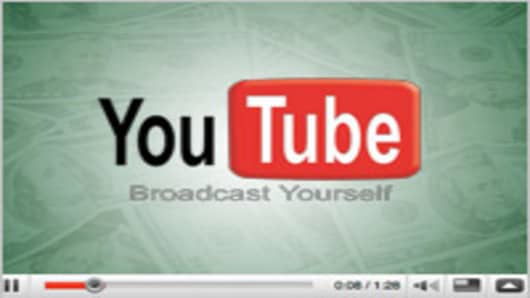At this hour a New York Federal Court judge is releasing hundreds of documentsconnected to Viacom's billion dollar lawsuit against Google's YouTube.
The three year case has been largely cloaked in secrecy, many of the key allegations and supporting evidence sealed at the requests of both companies.
But no longer and we're learning quite a bit more about the relationship between these two in this very closely watched court case.
In its filings, YouTube claims that Viacom wanted desperately, and tried repeatedly to buy YouTube ahead of Google, but couldn't match Google's offer. When Viacom found out about Google's bid, it tried to partner with Google on the deal for YouTube, but was turned down.
A source at YouTube claims Viacom's lawsuit might have been because the company felt jilted.
YouTube also claims that Viacom hired no fewer than 18-marketing agencies to upload Viacom content to YouTube, and that there was no way for YouTube to know which clips were authorized to be there, that Viacom had created fake user accounts to hide who was really uploading the content, and that Viacom itself didn't know which clips it had authorized and which it hadn't. Viacom even had to go back to YouTube and ask for some clips to be restored that Viacom itself had posted, but that its legal department didn't know it.
Viacom has a decidely different take.
In an email between YouTube founders, Jawed Karim wrote to Chad Hurley and Steve Chen that YouTube was "aiming high," that in terms of the number of users and popularity he wanted YouTube to rank among Napster, Kazaa and Bittorrent sites known for their piracy of copyrighted material.
Other emails between top execs at YouTube question the posting of copyrighted material - A content review manager suspected clips from Viacom's Southpark could be unauthorized.
Another email from Chad Hurley: "....so a way to avoid the copyright bastards might be to remove the no copyrighted or obscene material line and let the users moderate the videos themselves.."
Another email seems to show YouTube aware of copyrighted material that needed to be taken down, but the founders question ... "leaving these in a bit longer? ...Another week or two can't hurt..."
And some other interesting points that caught my attention – the breakout of who got what and when, when Google’s purchase of YouTube closed - take a look:
- Chad Hurley received Google shares worth approximately $334 Million
- Steve Chen received Google shares worth approximately $301 Million
- Jawed Karim received Google shares worth approximately $66 Million
And Sequoia Capital got Google shares worth about $516 Million - keep in mind that's off of their $9 Million investment in you tube in late 2005 – nice return of investment.
We're just getting our first chance to look through these documents, there's plenty more and I'll file more as soon as I can sift deeper into them.
Questions? Comments? TechCheck@cnbc.com


